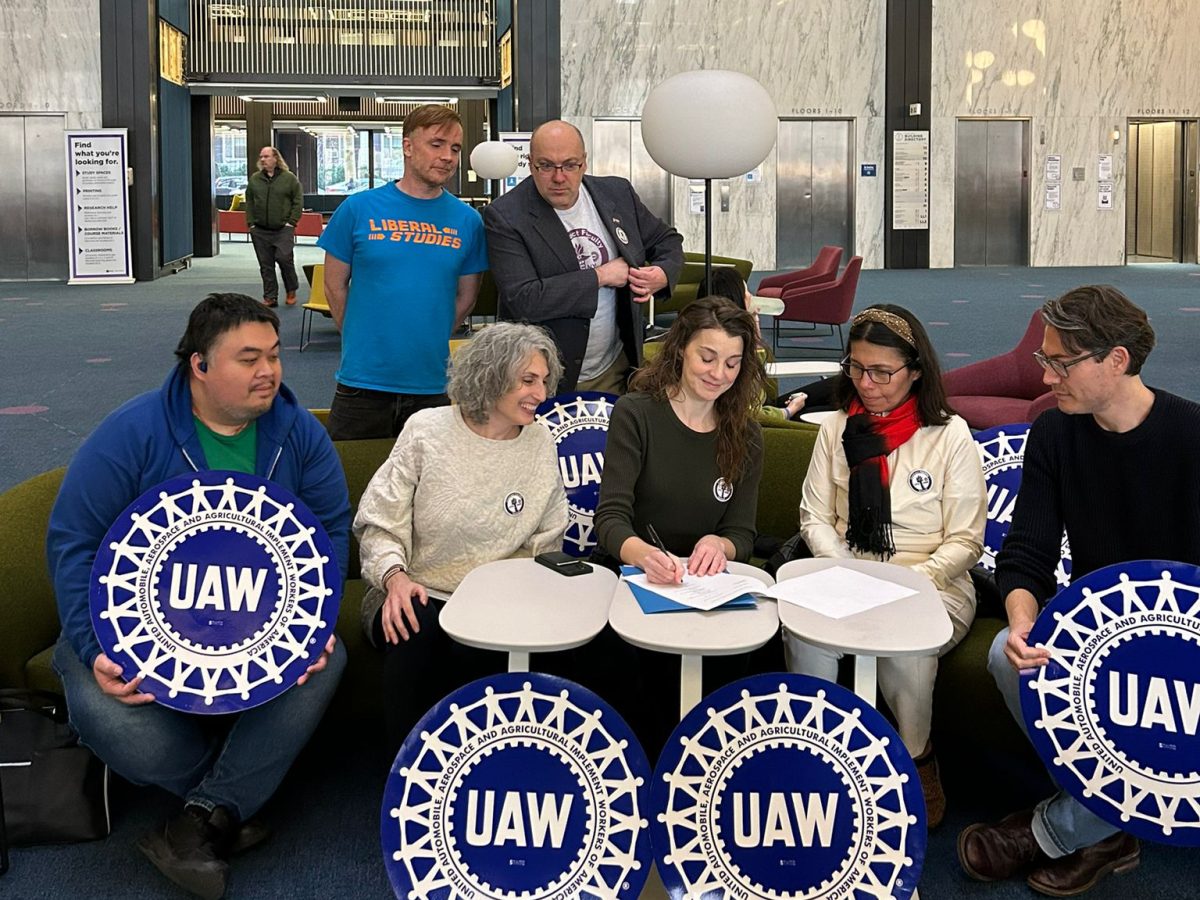NYU has had a somewhat rocky relationship with labor organizations on campus over the past few years. When its graduate student union demanded higher wages in 2021, the university did not give in to its demands until after the group went on strike for three weeks. In 2022, NYU’s adjunct faculty union came close to going on strike before reaching a contract with the university after months of negotiations.
Earlier this month, however, marked a win for workers on campus — the university’s contract faculty union, NYU Contract Faculty United, reached an agreement with NYU that will allow it to vote for its own recognition. This is a step closer to the union being able to negotiate a collective bargaining agreement for its workers, and potentially improve working conditions and rights, in the near future.
This is not to say CFU-UAW didn’t face any pushback in its unionization efforts, it has been asking for recognition since February. Organizers with the union have also criticized NYU in the past for excessive bargaining discussions and not addressing all of the group’s concerns.
Despite these delays, CFU-UAW was able to achieve an agreement without intervention from the National Labor Relations Board, the independent federal agency that protects certain labor rights, explicitly stating that it wanted to avoid the “lengthy litigation” that could have potentially resulted from government intervention.
In contrast, NYU Researchers United, a union representing more than 2,000 researchers, has had no choice but to get the government involved in its unionization efforts after the university . refused to recognize it. While other employees on campus — adjuncts, graduate students and now possibly contract faculty — have formally recognized union representation, a major source of prestige for the university remains unacknowledged.
The university seems to avoid its employees’ demands for unionization until the potential consequences, such as a strike, threaten to be higher than the cost of supporting their efforts. Two of its current union contracts are the result of a strike or the possibility of one, and its new election agreement with the contract faculty union is the result of a yearslong organizing effort; NYU clearly puts up a fight whenever its workers demand more protections.
While NYU has said it “has long appreciated” employees’ rights to seek union representation, its actions surrounding unionization on campus come across as unsupportive. Amid the graduate student union strike, the group accused an email to the NYU parents’ mailing list from former President Andrew Hamilton of being an “attempt to pit parents of students against striking grad workers” and called the message a “hallmark of NYU’s long history of union-busting and strike-breaking.” More recently, the adjunct professors union filed multiple grievances against the university after it made changes to many professors’ courses after its most recent contract with NYU.
This approach to unionization on campus not only needlessly prolongs unionization efforts at NYU, but also exposes the university to the risks of getting involved in potentially lengthy and costly legal battles. Why waste time and money fighting your own employees when you could both avoid conflict and strengthen the workers who drive your academic successes instead?
At the end of the day, NYU is only a collection of buildings without its staff of professors to teach or teams of researchers to secure its place as a top research university. It seems pretty clear that the best investment it could be making is in its employees, a choice it has been struggling to make for the past few years. Now, NYU has a decision to make between continuing to create obstacles for unionization and being on the side of the people who keep the university running.
WSN’s Opinion section strives to publish ideas worth discussing. The views presented in the Opinion section are solely the views of the writer.
Contact Molly Koch at [email protected].
























































































































































